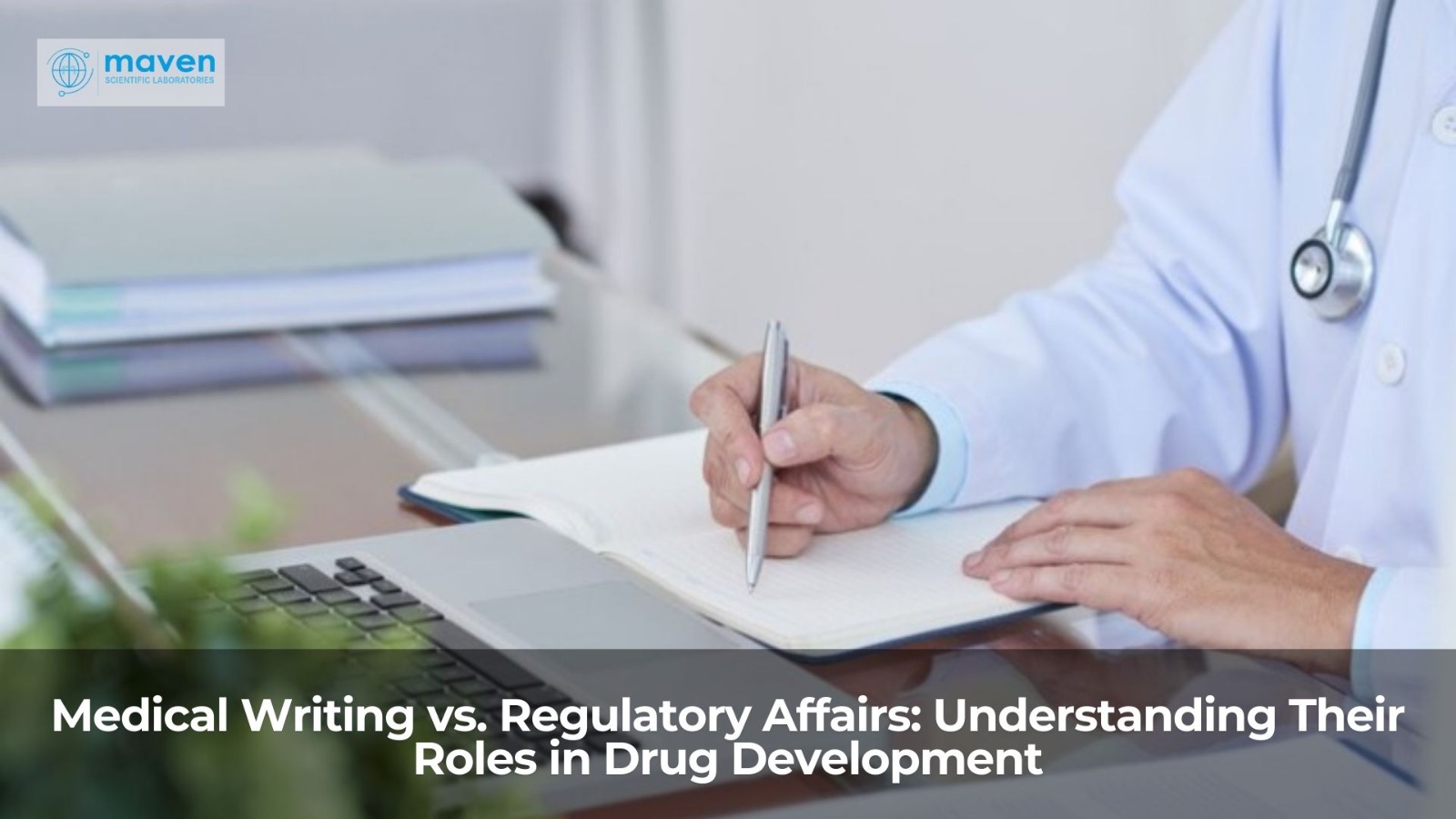
Medical Writing Vs. Regulatory Affairs: Understanding Their Roles In Drug Development
In the pharmaceutical, biotechnology, and healthcare industries, two crucial domains play a vital role in ensuring drug development, approval, and compliance: Medical Writing and Regulatory Affairs. While both fields contribute significantly to bringing safe and effective products to market, they serve distinct purposes. Understanding their differences is essential for professionals navigating these career paths and for organizations seeking expert support.
What is Medical Writing?
Medical Writing involves the creation of scientifically accurate, well-structured, and regulatory-compliant documents required for drug development, clinical trials, and regulatory submissions. Medical writers specialize in presenting complex scientific and clinical data in a clear, precise, and structured format.
Key Responsibilities of Medical Writers:
- Regulatory Writing: Preparing documents such as Clinical Study Reports (CSRs), Common Technical Documents (CTD), Investigator’s Brochures (IB), and safety narratives for regulatory authorities like the FDA, EMA, and MHRA.
- Scientific Writing: Creating peer-reviewed journal articles, white papers, abstracts, and conference presentations.
- Clinical Documentation: Writing clinical trial protocols, informed consent forms (ICFs), and patient information leaflets.
- Medical Communication: Developing educational materials for healthcare professionals (HCPs) and patients, including training modules, newsletters, and promotional content.
- Compliance and Accuracy: Ensuring all content aligns with regulatory guidelines and scientific integrity.
Medical writers must have a strong foundation in life sciences, excellent writing skills, and an in-depth understanding of clinical research methodologies and regulatory requirements.
What are Regulatory Affairs?
Regulatory Affairs is a multidisciplinary field focused on ensuring compliance with global regulations for pharmaceuticals, medical devices, cosmetics, and food products. Regulatory professionals act as a bridge between companies and regulatory agencies, guiding product approvals and market authorizations.
Key Responsibilities of Regulatory Affairs Professionals:
- Regulatory Strategy: Advising on regulatory pathways, dossier compilation, and market entry strategies.
- Submission Management: Preparing and submitting Investigational New Drug (IND), New Drug Application (NDA), and Biologics License Application (BLA) filings.
- Compliance and Risk Assessment: Monitoring global regulatory changes, ensuring adherence to Good Manufacturing Practices (GMP), Good Clinical Practices (GCP), and pharmacovigilance requirements.
- Labeling and Marketing Authorization: Reviewing product labels, claims, and promotional materials for compliance.
- Regulatory Liaison: Communicating with health authorities (FDA, EMA, MHRA, TGA, etc.) and responding to inquiries.
Regulatory Affairs professionals require expertise in laws and guidelines governing product approvals, strong analytical skills, and the ability to interpret and apply regulatory standards effectively.
Key Differences Between Medical Writing and Regulatory Affairs
|
Aspect |
Medical Writing |
Regulatory Affairs |
|
Primary Focus |
Scientific documentation and communication |
Regulatory compliance and market authorization |
|
Core Function |
Creating reports, manuscripts, and submissions |
Managing approvals, compliance, and risk |
|
Skill Set |
Writing, data interpretation, and clinical knowledge |
Regulatory expertise, policy analysis, and strategy |
|
Regulatory Interaction |
Indirect (via documentation) |
Direct (liaising with health authorities) |
|
Career Background |
Life sciences, medicine, or pharmacy |
Regulatory science, law, pharmacy, or business |
Collaboration Between Medical Writing and Regulatory Affairs
Though distinct, these fields work closely together. Regulatory Affairs professionals define submission requirements and timelines, while Medical Writers ensure that documents meet regulatory expectations. A seamless collaboration between both teams ensures smooth regulatory submissions and approvals.
Conclusion
Both Medical Writing and Regulatory Affairs are indispensable in the pharmaceutical industry. While Medical Writers focus on crafting precise scientific documentation, Regulatory Affairs experts navigate the complex landscape of compliance and approvals. Choosing between these careers depends on one’s strengths—whether in scientific communication or regulatory strategy.
Organizations seeking expertise in these domains must ensure effective coordination to achieve regulatory success and market readiness. Whether you are a professional exploring career opportunities or a company seeking regulatory support, understanding these key differences will help you make informed decisions.
Looking for expert Medical Writing or Regulatory Affairs services? Contact Maven today for professional support in regulatory submissions, compliance, and scientific documentation.







